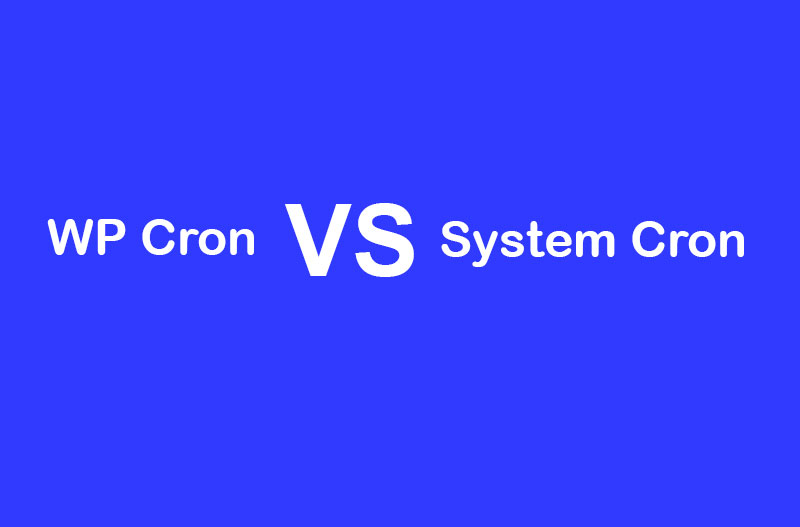WordPress Cron Jobs vs System Cron Jobs: Understanding the Difference
Cron jobs are an essential component of any web application that needs to execute tasks at specified intervals automatically. These tasks can be anything from sending email newsletters, updating content, and creating backups to running security checks and maintaining your server.
In the context of WordPress, there are two types of cron jobs you can use to automate tasks: WordPress cron jobs and system cron jobs. In this article, we’ll explore the differences between the two and help you decide which one is right for your website.
WordPress Cron Jobs
WordPress cron jobs are a type of scheduled task that is built into the WordPress core. These jobs run automatically whenever a user visits your website. When a user visits a WordPress website, WordPress checks if any scheduled tasks are due to run. If there are, it executes them.
WordPress cron jobs are incredibly convenient because they don’t require any additional setup. You can schedule tasks to run at specific intervals using WordPress functions, and WordPress takes care of the rest. However, this convenience comes at a cost.
One of the main disadvantages of WordPress cron jobs is that they are not entirely reliable. Since they depend on a user visiting your website, they might not run at the exact time you expect them to. This can cause problems if you need tasks to run at precise intervals.
Another issue with WordPress cron jobs is that they can slow down your website. Whenever a user visits your website, WordPress checks for scheduled tasks, and if there are any, it executes them. This can cause delays and slow down your website’s performance, especially if you have many scheduled tasks.
System Cron Jobs
System cron jobs, on the other hand, are scheduled tasks that run at the operating system level. These jobs are entirely independent of WordPress, and they don’t rely on a user visiting your website to execute. Instead, they run at specific intervals, such as every hour, every day, or every week, depending on how you set them up.
System cron jobs are much more reliable than WordPress cron jobs since they don’t depend on website traffic. They are also more flexible since you can schedule them to run at precise intervals. Additionally, since system cron jobs don’t rely on website traffic, they won’t slow down your website’s performance.
However, setting up system cron jobs requires some technical knowledge. You’ll need to access your server’s command line interface and configure the cron jobs using a special syntax. This can be intimidating for non-technical users, and mistakes can cause serious problems with your server.
Which One Should You Use?
When it comes to choosing between WordPress cron jobs and system cron jobs, it depends on your specific needs. If you need to schedule simple tasks that don’t require precise timing, WordPress cron jobs are an excellent option. They are easy to use and require no technical knowledge.
However, if you need to schedule more complex tasks that require precise timing, or if you want to avoid slowing down your website’s performance, system cron jobs are the better option. They require more technical knowledge to set up, but they are much more reliable and flexible.
In conclusion, both WordPress cron jobs and system cron jobs have their advantages and disadvantages. Choosing the right one depends on your specific needs and technical expertise. If you’re not sure which one to use, it’s always a good idea to consult with a web developer or a hosting provider. They can help you choose the best option for your website and set it up correctly.


